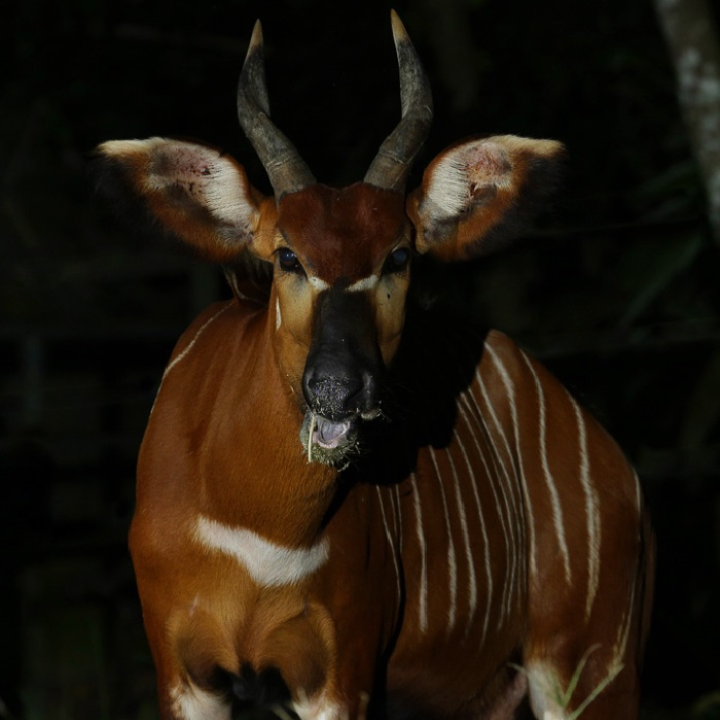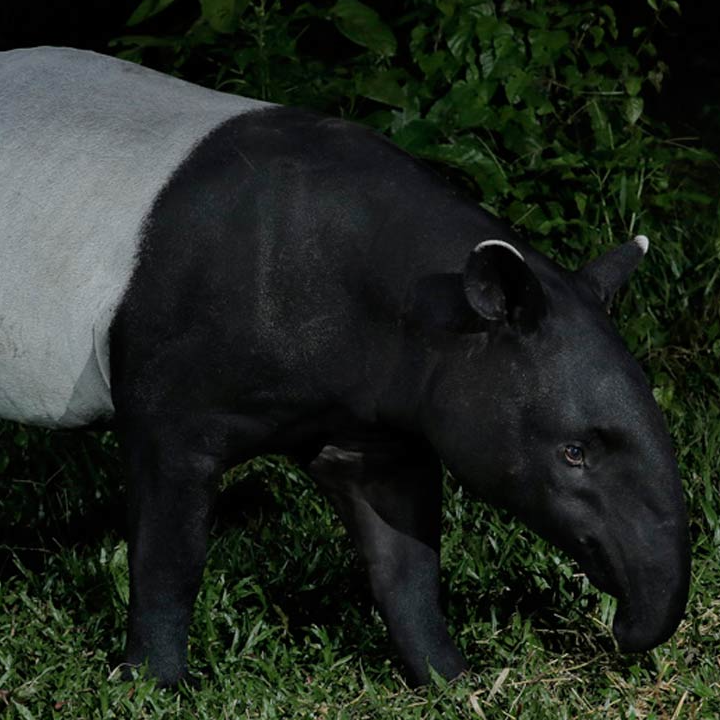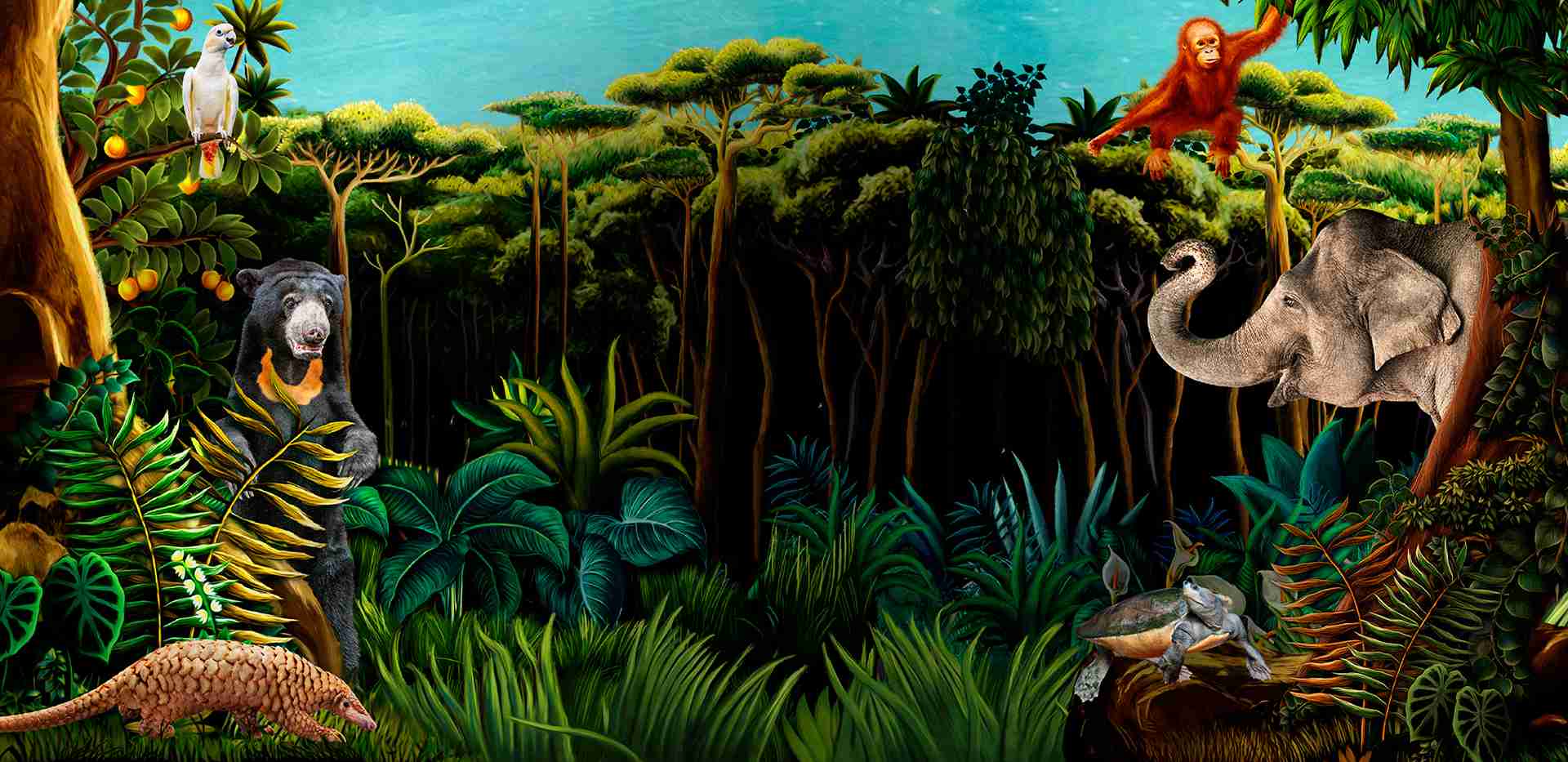Lifespan60-70 years in the wild and up to 80 years under human care
Quick facts


DietMainly browse, grass and minerals taken from salt licks

HabitatGrassland & forest

RangeFragmented populations in tropical Asia
The Asian elephants

Eating all day
Elephants in the wild can spend up to 19 hours a day feasting on a variety of plants. In southern India, elephants were to eat up to 82 different plant types.
Each of our elephants get around 150 kg of grass and leaves a day, in 20kg ‘bite-sized’ chunks every hour. Watch out for the cheeky antics of Tun – she is known to ‘steal’ food from even the matriarch of the herd, Jamilah.

Trick or treat
While browse makes up the bulk of their diet, our elephants also enjoy the occasional fruit such as bananas, apples, watermelons, mangosteens. Sugarcane, tamarind and carrots are also given, but only as treats.
Look out for the new app-controlled feeding boxes in Chawang’s exhibit, marking our move towards activity-based exhibits. At the tap of a phone, the boxes release a ‘rain’ of peanuts and pellets. The random timings never fail to catch our 40-year-old bull by surprise.

Tusk, tusk
Tusks are modified incisors of an elephant. Only male elephants have tusks, unlike the African elephants where both males and females have tusks. Elephants use tusks to strip tree bark and to dig for water and salt.
They're also valued as ivory in the illegal wildlife trade. Since 2013, eight tonnes of ivory have been seized at Singaporean ports. It’s time we take poachers to task. Say no to ivory!
The keeper

Shafiq Shamuri
Senior keeper

Shafiq Shamuri
Senior keeperCould you share more about Neha?

Shafiq Shamuri
Senior keeper

Shafiq Shamuri
Senior keeperHow is Neha doing in elephant 'kindergarten'?

Shafiq Shamuri
Senior keeper

Shafiq Shamuri
Senior keeperCould you share more about the other elephants?
As they are older, they are calmer. Except for Tun. If she’s happy, she will run around in circles. When she’s frustrated, it shows too. When we do special feedings for guests, she will reach out to get the food. She’s a greedy one!. All the guests love her.
Together, we protect wildlife

Herpes in elephants
The IUCN Status
Endangered
At very high risk of extinction in the wild

The IUCN Red List of Threatened Species
The IUCN Red List of Threatened Species is widely recognized as the most comprehensive, objective global approach for evaluating the conservation status of plant and animal species.
Data Deficient
Unknown risk of extinction
Least Concern
At relatively low risk of extinction
Near Threatened
Likely to become vulnerable in the near future
Vulnerable
At high risk of extinction in the wild
Endangered
At very high risk of extinction in the wild
Critically Endangered
At extremely high risk of extinction in the wild
Extinct in the Wild
Survives only in captivity
Extinct
No surviving individuals in the wild or in captivity




